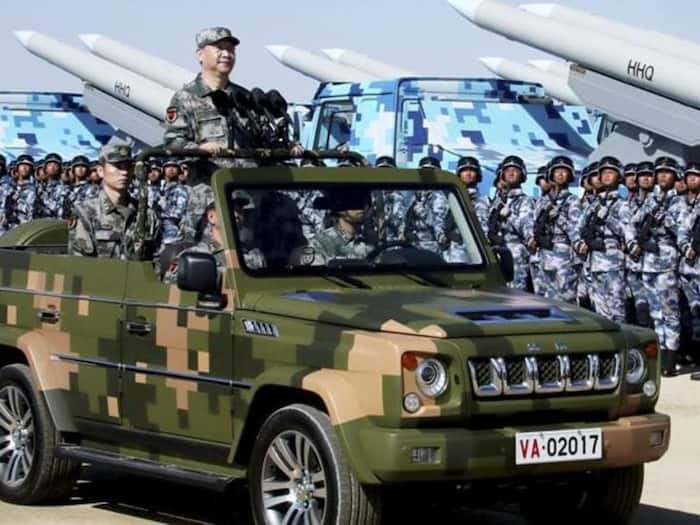
[ad_1]
PLA has experienced a challenging period in recent months, with the defense minister and high-profile commanders being removed from their positions due to corruption allegations.

Hong Kong: China’s People’s Liberation Army (PLA) has experienced a challenging period in recent months, with the defense minister and high-profile commanders being removed from their positions due to corruption allegations. Amid all of this, speculation about a submarine loss has added further turbulence within the party. Despite these issues, the PLA persists in maintaining its strict discipline and testing its capabilities, as the country has become increasingly assertive in the South China Sea and more vocal about its intentions regarding Taiwan.
Rumours Of Sinking Nuclear-Powered Submarine
What are the speculations surrounding the alleged sinking of a nuclear-powered submarine belonging to the PLA Navy? Although this rumour has circulated for some time, it is highly improbable. Dr. Joel Wuthnow, a Senior Research Fellow at the Center for the Study of Chinese Military Affairs at the National Defense University in Washington, D.C., provided the following insight on the issue and stated, “It was an interesting case because it started as a social media rumour and was then picked up by the tabloid press, and then made its way into the mainstream press. And so I think it’s an example of how unconfirmed information can kind of quickly get into the public sphere,” he said.
“My perception so far is that there really wasn’t anything to it. No government has officially or really even informally weighed in on this topic. It doesn’t seem to have happened, but it is an example of how we need to be very careful about information, especially in the Chinese context where things like this can be believable, precisely because they tend not to want to admit technical failures. technical glitches and problems that they’re facing. And so in the absence of official information from them, the idea of some kind of problem, scandal or rumor, it’s very easy for us to believe these things,” Wuthnow added.
China Vocal on Intimidating Tiwan
Despite China’s denial of any submarine loss, it has taken an aggressive stand towards Taiwan. For instance, during the 10th Beijing Xiangshan Forum on October 29, Lieutenant General He Lei, the former vice president of the PLA Academy of Military Sciences, made a resounding statement: “If the Chinese government is compelled to use force to address the Taiwan issue, it will be a war for reunification—a just and legitimate war supported and participated in by the Chinese people—to crush foreign interference.”
These words signal a confrontational stance and align with the increased activities of the PLA near Taiwan, particularly in the form of aircraft incursions into Taiwan’s air defense identification zone. China’s coercive military actions began to escalate notably after former U.S. House Speaker Nancy Pelosi’s visit to Taipei in August 2022.
Psychological Pressure On Taiwan Alliance Countries
Nevertheless, it’s crucial to recognize that China is employing psychological pressure to intimidate both Taiwan and any potential allies considering the defense of the democratic nation, particularly as Taiwanese citizens prepare for presidential elections in January 2024. The threat of invasion differs significantly from the actual capability to carry it out, even though it underscores China’s inclination towards aggression, particularly under Chairman Xi Jinping.
In a conversation with the non-profit research institute Pacific Forum based in Hawaii, Dr. Wuthnow highlighted several factors that might give Chairman Xi cause for concern as he contemplates transforming Taiwan into a communist satellite. He observed, “From an economic perspective, engaging in a war with Taiwan could expose China to substantial sanctions, potentially affecting trillions of dollars in assets and trade flows. The lessons learned from Russia’s involvement in Ukraine have shown Beijing the extensive coordination between Washington and its allies in responding to oppression.”
Furthermore, China’s military has not experienced active combat since 1979 and faces logistical challenges. Their initial assumption of achieving swift victories in war is now challenged by the evolving dynamics of warfare, as exemplified by Russia’s difficulties in Ukraine.”
[ad_2]